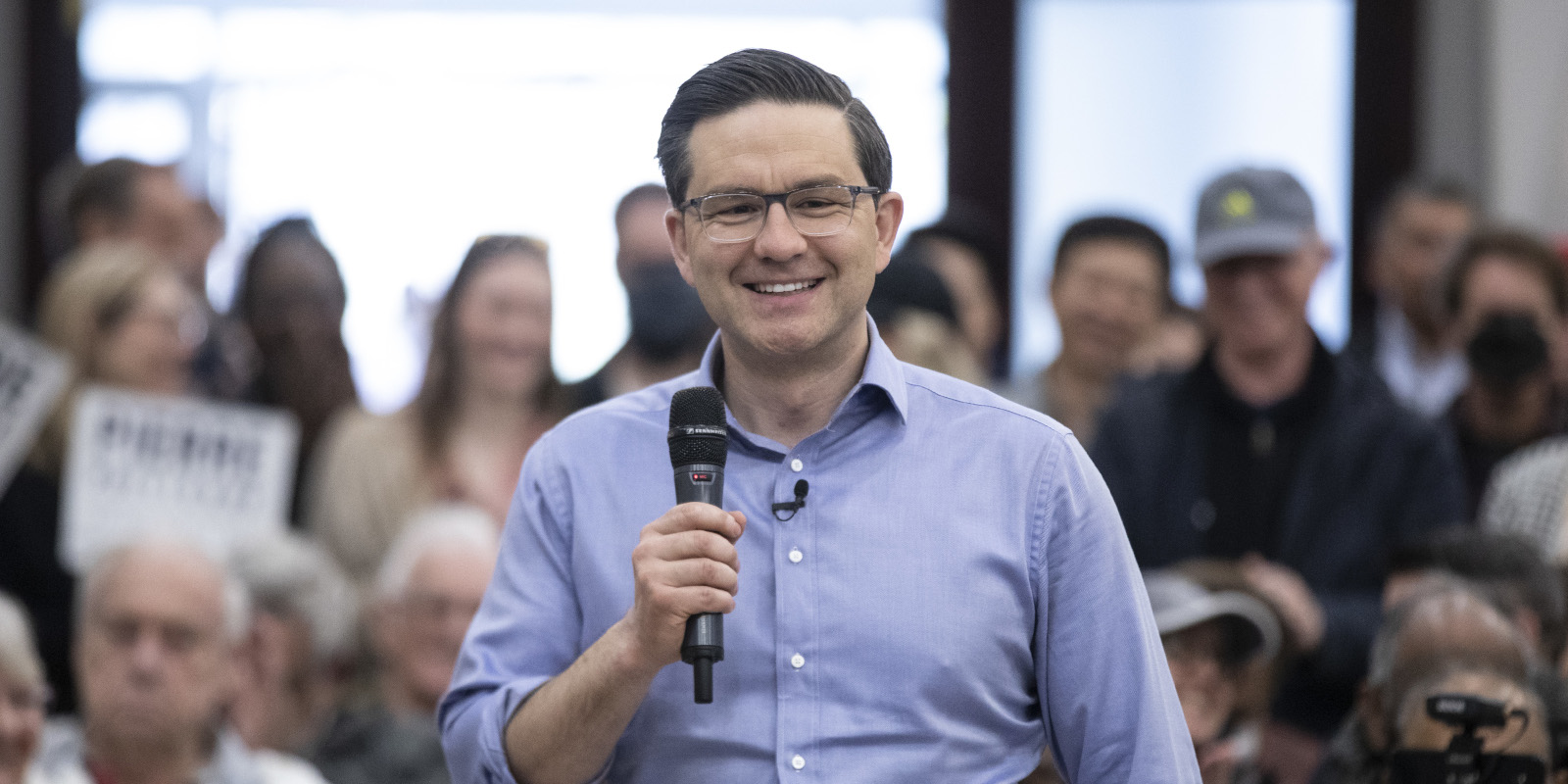The Conservative Party’s leadership race has been conventionally seen as a battle between the moderate establishment candidate Jean Charest and the rowdy populist Pierre Poilievre.
But one academic who studies populism and its cultural causes says Poilievre’s campaign has been fairly traditional, especially when compared to the global populist movement that has swept the Western world in the last decade.
“The populist moment really was about parties moving away from just talking about economics to talking about those tricky cultural issues. It’s happened with the People’s Party, but it’s not happened with Poilievre. I guess I would still see that as pretty much a standard conservatism, more of an establishment conservatism,” said Eric Kaufmann, a professor of politics at Birkbeck, University of London and the author of Whiteshift: Immigration, Populism, and the Future of White Majorities.
On a recent episode of the Hub Dialogues, Kaufmann said one clear sign that a candidate is pushing into populist territory is a fixation on immigration and the social justice politics (or “wokeness) embraced by the Left. Instead, Poilievre has trained his rhetorical sights on inflation, the Bank of Canada, the country’s housing shortage, and an all-encompassing opposition to “gatekeepers.“
“Poilievre, I think, has shied away largely from those (cultural) issues except in a few places. He’s largely about economics, which in my view is a relatively safe topic. You’re not going to get canceled for it,” said Kaufmann.
Although Poilievre has been the consistent frontrunner in the race to succeed Erin O’Toole as the permanent leader of the Conservative Party, he has been dogged by questions about whether he will be palatable to moderate voters in a federal election.
A recent survey by the Angus Reid Institute seemed to confirm that Poilievre is disliked by previous Liberal and NDP voters, although People’s Party of Canada voters view him favourably. Poilievre may also be shunning the conventional strategy of chasing “swing voters” and, instead, pursuing people who have previously chosen not to vote in federal elections.
In chasing these new voters, Poilievre has doubled down on opposition to COVID-19 restrictions and vaccines mandates, while vocally supporting the cause of Freedom Convoy protesters, to the chagrin of establishment Conservatives.
Kaufmann believes that the populist spasm in response to the pandemic, seen in Canada and other Western countries, will pass quickly and won’t necessarily fuel the larger populist movement.
“I actually don’t think that that is a significant source of populist movements we see across the West now. Even though it has played in Canada, I think that’s a departure from the pattern that we tend to see across the West,” said Kaufmann.
Kaufmann said that conventional populism, which targets immigration and other cultural issues, hasn’t taken root in Canada due to a strong taboo against those topics in the media and other elite institutions.
“I think it’s because of the power of the cultural Left in Canada. Now, of course, the way the power of the cultural Left works is that it works up until the point it doesn’t work. The suppression works to keep ideas such as reducing immigration out of the political debate until that crumbles,” said Kaufmann.
In his book Whiteshift, Kaufmann wrote that attitudes in Canada aren’t very different from other countries, like the United States, that were rocked by a populist candidates.
“What you see in Canada is you do see the People’s Party raising these issues. You do see that Conservative voters, for example, compared to Liberal and NDP voters, are like 50 points apart on immigration. There’s a natural place for the Conservatives to go, but of course, the media environment and the cultural environment in Canada is very strongly dominated by the cultural Left,” he said.
Kaufmann said he views populism as a fundamentally cultural phenomenon, and with the Left currently dominating important institutions like the media and academia, it could mean that our populist moment turns into a populist era. In his research, Kaufmann has tracked the ideological shift in journalism and academia that, over decades, has pushed progressives from a slight majority to utterly dominant in these institutions“If you look at the composition of the professoriate and the composition of journalists in mid-1960s America, you could see that there was a ratio of about one-and-a-half on the Left to one on the Right. Or in the social sciences like sociology, it was maybe three to one. Fast forward to our time and those numbers instead of three to one, it’s 12 to one. For media there’s also been something like a tripling. There’s been a major shift.” Eric Kaufmann on the Hub Dialogues podcast..
“I think there is a kind of in-built dynamic here where we’re going to see populism as long as there is a very strong cultural Left controlling these institutions,” said Kaufmann.
“There’s an awful lot of incentive to rail against the elites in those institutions.”
Recommended for You

Ginny Roth: J.D. Vance, Pierre Poilievre, and how they slice their economic pie

David Polansky: As President Biden leaves the race, will the Democratic Party hodgepodge hold?

RCMP spending to protect MPs may have risen 112% since 2018, as Canadian politicians face greater rise in threats

Peter Menzies: The mainstream media should love Doug Ford, now that he’s subsidizing them









